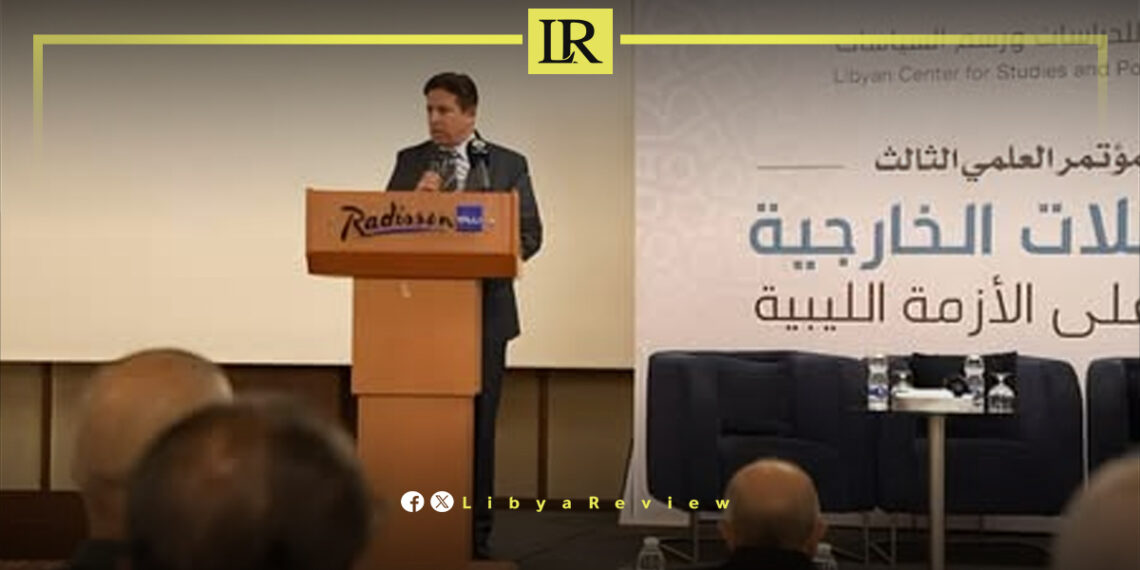On Saturday, the Chairman of the Foreign Affairs Committee in the Libyan House of Representatives, Youssef Al-Agouri, called for unified national efforts to end foreign interference in Libya’s affairs.
Speaking at a scientific conference titled “Foreign Interventions and Their Impact on the Libyan Crisis” held in Tripoli, Al-Agouri emphasized the need to prioritize Libya’s sovereignty and territorial integrity.
The event, organized by the Libyan Center for Studies and Policy Making, brought together academics, researchers, and experts from across Libya to explore the implications of foreign involvement. Participants presented research papers examining the influence of external actors and the effectiveness of the United Nations Support Mission in Libya (UNSMIL).
In his address, Al-Agouri highlighted the importance of halting all foreign meddling to restore stability in the country. He outlined several key steps necessary for Libya’s progress, including drafting a permanent constitution, achieving national reconciliation, unifying executive authorities, and ensuring that Libyans can choose their representatives through free and fair elections.
He drew attention to the legacy of Libya’s founding fathers, who prioritized the country’s independence and sovereignty while resisting external domination. He reiterated the importance of continuing that legacy by mobilizing sincere national efforts to protect Libya’s interests and calling for the removal of all foreign forces from Libyan soil.
Foreign interference in Libya has remained a contentious issue since the 2011 uprising that led to the fall of Muammar Gaddafi.
The power vacuum left behind allowed rival domestic factions and international actors to engage in a proxy struggle that has prolonged instability and deepened divisions within the country. Foreign states have been accused of supplying arms, funding militias, and deploying mercenaries to further their own agendas, complicating Libya’s path to reconciliation.
Despite repeated international calls for the withdrawal of foreign forces, progress remains slow, with competing global interests often hindering efforts to implement peace agreements.


